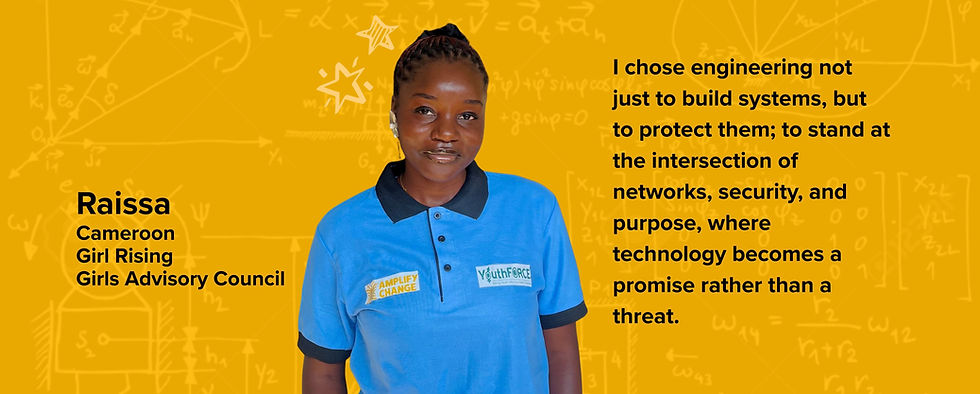When Money Doesn’t Mean Control
- Sep 25, 2025
- 3 min read
By Alishba Junejo, Girl Rising Student Ambassador, Pakistan

In my home in Pakistan, I watched the women who worked as domestic help spend long hours cleaning, cooking, and caring for families. They were oftentimes the main earners in their households, but when payday arrived, almost none of the money stayed with them. Their husbands collected their salaries, deciding how to spend them: on their expenses, on relatives, or on virtually anything but the women who had earned them.
Despite being breadwinners, these women received little recognition at home and often faced the same misogyny they carried with them from the outside world and their families. Contrary to popular belief about women earning their own income as a means for autonomy, work gave them no independence, and money did not translate to independence. Their experience made visible a deeper truth, which is that earning money and controlling it.
Globally, nearly one billion women are excluded from the formal financial system, unable to open bank accounts, save securely, or access fair credit (World Bank 2022). Cultural (and in some countries) legal barriers often prevent women from making financial decisions independently. Studies have shown that women are more likely not to have a bank account than men, especially in South Asia, where the gender gap in account ownership is one of the largest in the world (Demirgüç-Kunt et al. 2022).
Financial exclusion is also about knowledge. According to the Organisation for Economic Co-operation and Development (OECD), women score significantly lower than men on financial literacy assessments, which measure the ability to understand budgeting, risk, and interest (OECD 2018). Without financial literacy, wages pass through women’s hands without providing them with any real autonomy.
This is the gap that inspired me to create Cents & Sense, a financial literacy initiative aimed at making money knowledge accessible. I began by distributing brochures (short, simple guides on saving, budgeting, etc.) at my local library and park district. Later, I expanded the project online, posting graphics that break down financial concepts in plain language.
The aim is not to turn every person into an expert, but to give people tools they can use immediately in real life. A budget worksheet can help a young person manage their allowance. A flyer on online scams can help someone avoid fraud. In each case, financial literacy becomes protection.
Promoting financial literacy isn’t an easy task. Talking about money, especially as a young woman, often means being told it’s “too complicated” or “not your concern yet.” But silence around money only benefits those who already have it.
The women I mentioned earlier as examples were silenced not because they lacked intelligence, but because they lacked financial education and social permission. Their stories illustrate the global problem of when women are denied knowledge and control, leading to self-perpetuating inequality.
Financial literacy is sometimes presented as numbers and balance sheets, but at its core, it is about dignity and power. It determines whether a woman can leave an abusive household because she has her own savings, whether a girl can continue her education, or whether a family can plan beyond survival.
Financial literacy should not be treated as a privilege for the educated or the wealthy, but as a basic right. Just as healthcare and education are foundations of equality, so is the ability to understand and manage money.
Through my initiative, I hope to make a small contribution to this shift from dependency to
empowerment. Because money isn’t just about numbers, it’s about freedom, choice, and respect.




Comments